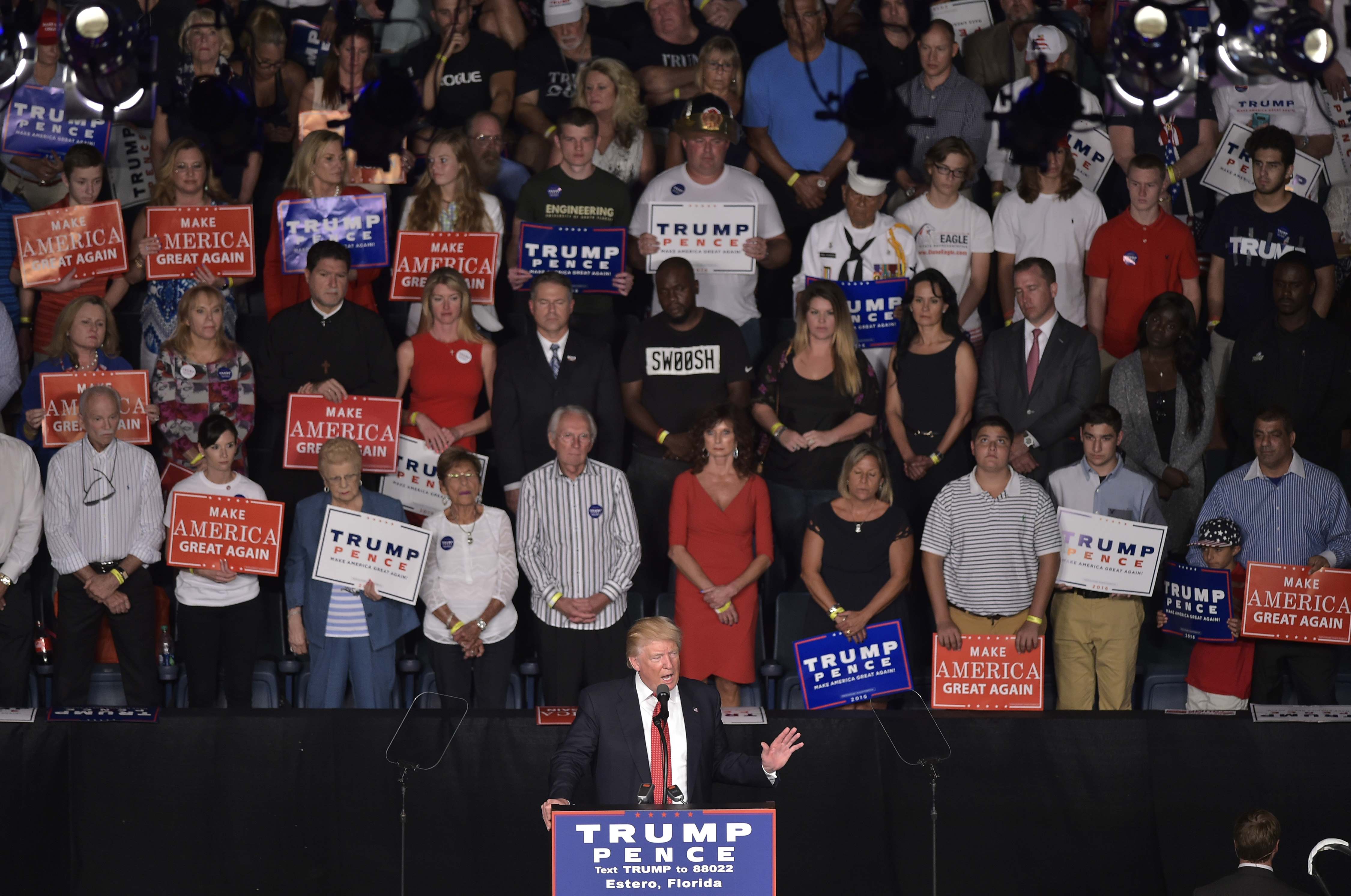
While most Republican politicians have accepted their party's nominee, Donald Trump, the tribe of policy intellectuals and journalists known as neoconservatives have been, for the most part, admirable holdouts.
It's easy to understand why. Trump has accused George W. Bush of lying the country into the Iraq War. He has adopted the old slogan of pre-Pearl Harbor neutralists, "America First." Trump lavishes praise on Russian strongman Vladimir Putin.
The names of the NeverTrump neos are well known. They include the editor of Commentary, John Podhoretz, his Weekly Standard counterpart, William Kristol, as well as the influential writer Robert Kagan.
Eric Edelman, a former senior adviser to vice president Dick Cheney and ambassador to Turkey, told me there are three distinct neocon positions this election season. "There are the Never Trump, Never Hillary and I don't care people," he said. "Then there are the 'I'm with her' people. Then there is a third group who will hold their tongue, but support Hillary quietly and vote for her."
But there is also a fourth group this election cycle, those who will actually take the plunge for the candidate promising the kind of reset with Putin that neocons opposed when Hillary Clinton tried it in 2009 and 2010. These include Norman Podhoretz, John's father, who recently said Trump would be better than Clinton and Dick Cheney, who said earlier this year he would support his party's nominee, breaking with his former boss, George W. Bush, who is sitting out the current election.
And now this group also includes James Woolsey, Bill Clinton's first director of central intelligence. Woolsey has the classic characteristics of the neoconservative, in that he migrated from left to right, much like Irving Kristol and Norman Podhoretz. In 1968, he was the head of Yale Students for Eugene McCarthy, and led the campus anti-Vietnam War movement. By 2002, he was a leading voice advocating for the Iraq War.
Last week, Woolsey made headlines when the Trump team announced that he would be advising the campaign in the homestretch of the election. In an interview Monday, Woolsey told me that he did not technically endorse Trump. "I agreed to advise the candidate," he told me. "I don't think of myself as someone who puts an imprimatur on candidates." Rather, Woolsey said, he sees himself akin to a lawyer willing to advise a client.
That said, Woolsey did make clear that in a choice between Clinton and Trump, he favoured Trump. "Unless you are going to sit at home and twiddle your thumbs on Election Day, you are either going to vote for him or vote for her, and I disagree with a lot of what Hillary has done," he said.
But Woolsey also disagrees with a lot of what Trump at least says. To start, there is the issue of the Iraq War. In the South Carolina debates in February, for example, Trump said Bush knew there were not weapons of mass destruction in Iraq and invaded the country anyway, a line often repeated by left-wing groups such as Code Pink and the Answer coalition.
Woolsey begs to differ. He first told me that he believed Saddam Hussein was the primary liar about such weapons because he made it appear that he had something to hide, apparently in order to dissuade Iran from attacking him. (This view is supported by an analysis of Iraqi captured documents and interviews with Saddam loyalists.)
He added that Trump "has a kind of shtick and sometimes people say he shouldn't have said this or that, but look back, he beat his 16 opponents."
Then there is Putin. At a talk Woolsey gave Monday at a conference for the Israeli legal advocacy group known Shurat HaDin, Woolsey spoke about how Putin today was behaving like former Soviet leaders. When asked about Trump's praise of Putin as a strong leader, Woolsey offered: "He has said some things I would have said differently. But he's the one who is the presidential candidate, it doesn't matter much what Woolsey says."
Woolsey also noted that Franklin Delano Roosevelt, a president he admires, made a pact with Josef Stalin to defeat Hitler. While Woolsey said it would be wrong to pursue a formal alliance with Russia today against extremists, it would be wise to avoid a confrontation with Russia, particularly at a moment when the US needed to rebuild its military.
One of the more surprising things about Woolsey's decision to advise the Trump campaign has been his own history on the issue of immigration. In 1998, Woolsey decided to represent six Iraqi fighters associated with opposition leader Ahmad Chalabi who sought to challenge a ruling that would have deported them back to Saddam Hussein's Iraq. Woolsey won that case and succeeded in getting the six resettled in Iowa. He boasted of this work in the run-up to the Iraq War.
When I brought this up with him on Monday, the former spy chief smiled and told me he remained proud of it. When asked about how Trump has repeatedly referred to "illegals" crossing the Mexican border as "rapists" and "murderers," Woolsey again said he would personally not use such language.
"He talks in terms of categories," Woolsey said. "I just don't think the formulation of categories of that sort in order to make a point sometimes using hyperbolic references is the heart of the matter of whether someone will be a sound president."
Woolsey couldn't quite bring himself to say, though, that Trump would be a sound president. "I think he is going to be a far sounder president than his opponent and that's the only issue," he said.
Many of Woolsey's old friends don't see it that way. Some are even coming around to the political party the first generation of neocons left in the 1970s. But Woolsey already left the Democrats once. In 2016, he has no intention of returning to their fold. -Bloomberg View